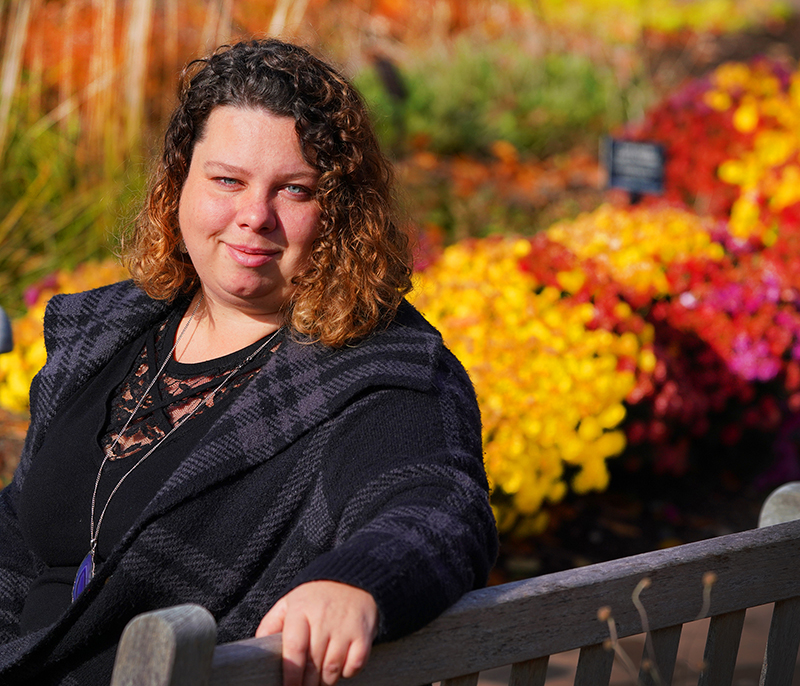The student
Missouri native Brooke McWherter grew up loving nature and, like many children of the ’90s, followed the adventures of environmental superhero Captain Planet. But it was Jane Goodall —“a
woman scientist showing us animal behavior,” McWherter notes — who influenced her choice to study wildlife biology at Missouri State University. McWherter then spent two years in the Peace Corps as an environmental education and conservation specialist in Yataity, Paraguay. There she became increasingly aware of how people’s decisions impact wildlife and wildlife habitat. “It inspired my interests in more human-focused programs,” she says. “I still wanted to conserve nature, but people’s livelihoods are embedded in these landscapes.” McWherter sought to balance her knowledge of animal biology by strengthening her understanding of human needs, wants and perceptions. She earned a master’s degree in environmental justice and conservation ecology at the University of Michigan before coming to Purdue in 2017 to work in the Human Dimensions Lab of Zhao Ma, professor of natural resource social science. McWherter focuses on understanding human-wildlife and human-environment relationships to improve conservation strategies. “Coming from biology has helped me think about this better,” she says.
The research
“My research focuses on the ways that trust and risk perception influence decision making in natural resource management,” McWherter says. Her dissertation has three distinct chapters. The first two involved a return to fieldwork in Bolivia, to study how landowner participation in conservation programs influences trust in implementing organizations; and how nongovernmental organizations (NGOs) and governments leverage shared risk and trust to collaborate in watershed conservation program design in that country. She is part of an interdisciplinary team of faculty and students from Purdue, Utah State University, and Brandeis University, as well as a local Bolivian NGO. This project is being funded by a National Science Foundation grant (NSF #1660481). Her third chapter brought her back to Indiana to study a human-wildlife conflict: how humans interact with — and livestock producers tolerate — black vultures, based on cultural values, emotions, and economic considerations. McWherter uses both qualitative and quantitative techniques.
Opportunities
McWherter’s committee members, from her own department plus agricultural economics, consumer science, anthropology, sociology and political science, reflect the interdisciplinary nature of her research. She credits her advisor with encouraging her to explore different fields. McWherter has presented her research at two international conferences and co-authored four manuscripts and one journal article. She cites the Introduction to College/University/Scientific Teaching course taught by Liz Flaherty, associate professor of wildlife ecology & habitat management, as “another resource I found very valuable.” McWherter is active with the Center for the Environment’s signature research area on Building Sustainability Communities and is the graduate student representative on the FNR Diversity, Equity, Inclusion and Justice Committee. She appreciates her labmates’ different backgrounds: “Diversity always enhances a lab,” she says. “It means that we’re all learning something new and we’re all bringing something to the table.”
Future plans
In the spring McWherter will teach an undergraduate course, FNR 375 Human Dimensions of Natural Resource Management. After completing her degree next summer, she hopes to land a postdoctoral position and ultimately, join the faculty of an R1 institution. In her spare time she enjoys posting her wildlife photography on Instagram and sculpting wildlife: “That allows me to touch back to those wildlife biology days,” she says.
